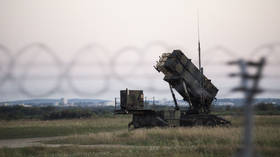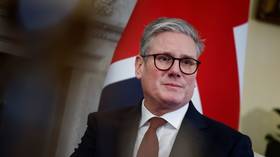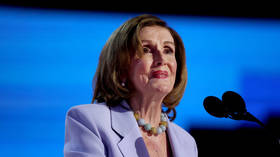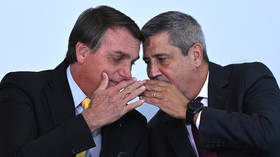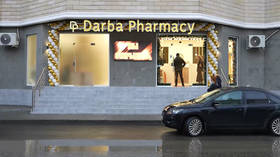Diplomatic war rages between Russia, UK
Russia's Foreign Minister Sergey Lavrov has defended proposed action against the British Council, after its refusal to cease operations in two cities. Moscow is threatening to stop issuing visas for Council staff and Britain says relations will be affecte
Russia's Foreign Ministry has labeled the British Council's refusal to stop operating in St Petersburg and Yekaterinburg by January 1 a provocation aimed at increasing tensions with Russia.
Moscow claims the branches of the Non Government Organisation are violating Russian law and international conventions.
The row revolves around the tax and legal status of the British Council.
The British Council office in Yekaterinburg operates within the British Consulate grounds in the city under the new title of the Consulate's cultural department.
According to Moscow that's unacceptable as it violates international law, which states that organisations without diplomatic status cannot operate within consulates or embassies.
“A 1994 agreement states that the British Council's activities [in Russia] must comply with Russian laws. The British Council has not received permission from the government to open its regional offices and did not even ask for it,” Russian Foreign Minister Sergey Lavrov said.
We are closely examining all the legal details. We have noticed Britain's partners from the EU, who have their cultural centres in Russia, such as Germany, France, Italy and Spain, operate very differently compared to Britain. Their activity is fully legal. So Britain is alone among our foreign partners in trying to stick to its own style of behaviour and impose its own rules of operation here. That may be convenient for the British side. But I must remind them that this is Russia, governed by Russian laws and not British ones,
Konstantin Kosachev,
Head of the State Duma Foreign Affairs Committee
Talks to establish the legal status of the Council stalled following the tit-for-tat diplomatic expulsions in the wake of the Lugovoy extradition row last year.
However the British Council offices in St Petersburg and Yekaterinburg were re-opened after the New Year holiday.
Russia's Deputy Foreign Minister Vladimir Titov voiced his bewilderment after the British Council offices continued operating. Russian authorities have promised further action.
“The Russian side has announced a series of measures. We will take steps towards collecting the tax debt of the British Council in St Petersburg. Also, we've decided to suspend the granting of visas to employees of the British General Consulate in St Petersburg and Yekaterinburg and will not prolong the accreditation of the employees working there now. If Britain continues to ignore Russia's demands we are considering measures concerning the British Council's head office in Moscow,” Foreign Ministry official spokesman Mikhail Kamynin said.
Aleksandr Pikaev from the Institute for World Economy and International Relations believes Britain is actively seeking to escalate the dispute.
“The Foreign Ministry has already hinted that the central office of the British Council, in Moscow, might be the next target for counter measures. We could discuss whether it is right or not, but clearly the British side is not prepared to limit the damage it inflicted to the UK-Russian relations last summer, it wants escalation and I'm afraid it would receive the escalation,” he commented.
Following his meeting at the Foreign Ministry, Britain's Ambassador to Russia, Anthony Brenton, denied claims that the Council was acting illegally. He also mentioned that the work of British Council is very helpful to Russia.
“The British Council is working entirely legally and will therefore continue to work and any Russian action against it will be a breach of international law. [Foreign] Minister Lavrov himself has made it very clear that the actions the Russians are taking against British Council stem from the disagreement that happened at the time when we tried to extradite Mr Lugovoy. So they have made a very clear political connection. We think that political connection is a mistake,” Brenton said.
Meanwhile, last month Sergey Lavrov insisted Russia has no option but to stand firm on the issue. He said Britain is manipulating international law but he was not surprised after London's request to change Russia's constitution in order to extradite Andrey Lugovoy.
“The British government undertook some actions, which inflicted what I would call systemic damage to our relations. They expelled our diplomats and announced they would stop co-operation with Russia's Federal Security Service, the FSB, which means a full stop on all counter-terrorism operations,” he said.
The order to close the Council was met with anger by some politicians in London. Foreign Secretary David Miliband accused Russia of using the British Council as a “political football” and said that a response is to follow shortly.
“The Government will consider these latest actions by Russia carefully and will continue to engage with our international partners on them. We will respond to the Russian Government shortly,” said Miliband.


